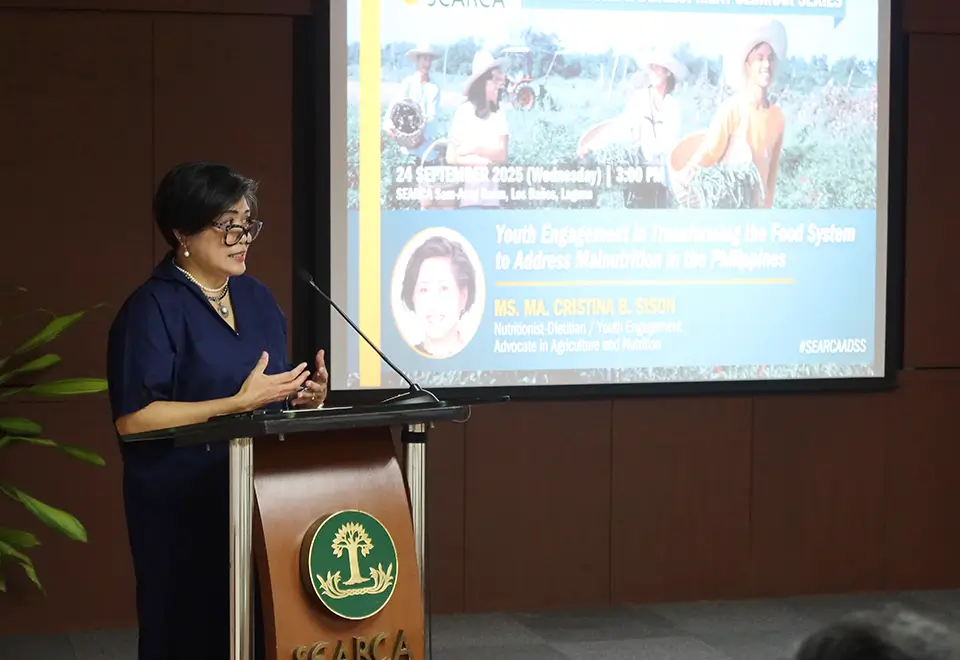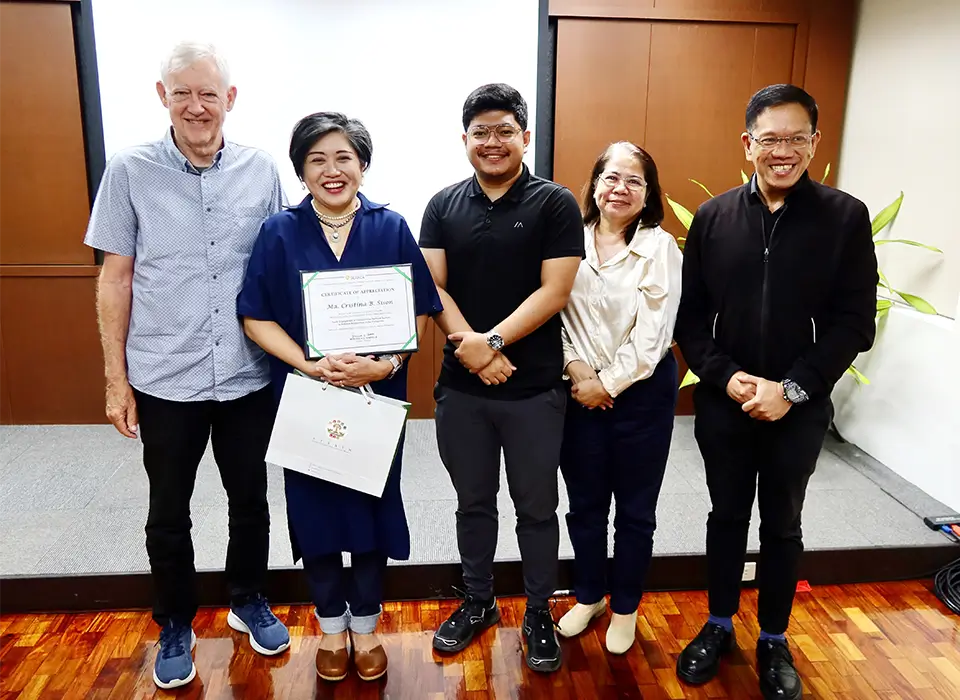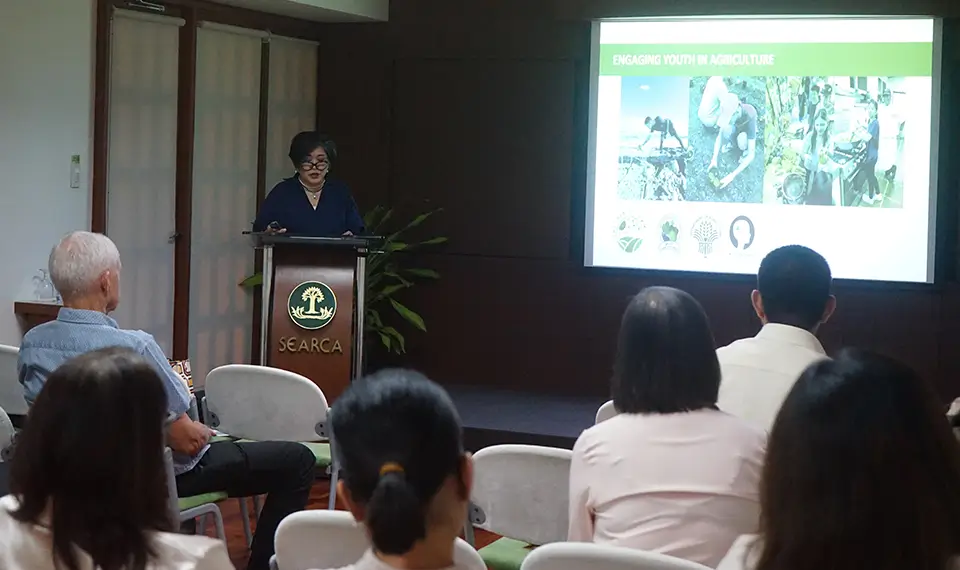
LOS BAÑOS, Philippines—An important window of opportunity for a healthy and productive adult life lies with basic education according to a study presented at the SEARCA Agriculture and Development Seminar Series (ADSS) held on 24 September 2025.
Nutritionist-dietician Ma. Cristina Sison, who co-authored the study "Youth Engagement in Transforming the Food System to Address Malnutrition in the Philippines" published in the 20th anniversary issue of the Asian Journal of Agriculture and Development (AJAD), brought to the discussion table a crucial yet often overlooked role of nutrition in economic development, especially among the youth.
Stressing the link between good nutrition with robust food production systems and agriculture in general, Sison asserted, "Our youth today will be the future experts and leaders … and will have an important role in ensuring that the quality of food from our agriculture sector is able to impact nutrition."
"Unless the younger generation takes on agriculture either as a profession or a vocation, our food system is at risk of losing its human resource," she added.
The seminar paper also lengthily discussed stunting as a debilitating result of chronic undernutrition, which is associated with delayed physical and cognitive child development.
"When both physical and cognitive development are hampered due to poor diets, stunted children may fail to achieve their full potential, which impact productivity during their adult life, which can then impact ability to earn, and have higher risk of developing chronic diseases," explained Sison.
A virtual attendee at the hybrid seminar asked if it is still relevant to teach basic nutrition to elementary (grade school) and high school students. Sison affirmed that it is, adding that learning about nutrition—and even agriculture— goes beyond knowledge and constitutes essential "life skills."
While recognizing that the learning focus of basic education in the Philippines is on STEM (Science, Technology, Engineering, and Mathematics), Sison urged the audience not to neglect life skills such as those on nutrition and agriculture.

John Carlo Navasero, another co-author of the AJAD seminar paper and a young educator, noted that nutrition and agriculture topics appear only piecemeal in the country's basic education curriculum. He added, however, that at the University of the Philippines Rural High School, where a portion of the study was conducted, there is a more holistic approach to nutrition and agriculture education, which not only covers a broader scope but is also more hands-on.
The study's primary author, 2016 World Food Prize Laureate Dr. Howarth Bouis, mentioned that existing youth organizations like the 4H Club—that is, Head, Heart, Hands, and Health—and programs of the Philippine Department of Education like the Gulayan sa Paaralan (school gardens) should be harnessed for the youth to participate in and strengthen nutrition education and agriculture in the school and the community.
Some 80 on-site and virtual participants joined the seminar, which included students, educators, and development practitioners not only from the Philippines but from Japan, Malaysia, Myanmar, and Sri Lanka.
One youth attendee who participated online remarked, "My takeaway is that, as a youth, I must be proactive in engaging the youth about healthy nutritional diet. When I go back to my hometown, I will encourage them to be involved in small activities like having a garden in their backyard."

The full AJAD anniversary issue featuring this seminar paper is available for free from ajad.searca.org. Past issues are archived and available for download from the site, while print copies are available through subscription and from the SEARCA Knowledge Shop in Los Baños, Laguna.
AJAD publishes articles resulting from empirical, policy-oriented, or institutional development studies, as well as articles of perspectives on agriculture and development, political economy of rural development, and trade issues. Submissions are welcome all year-round through https://ajad.searca.org/submit.
Meanwhile, the ADSS is SEARCA's flagship seminar series that encourages the presentation and discussion of development and research issues, as well as their implications for sustainable transformation of Southeast Asian agricultural systems through innovation. It aims to contribute to a vibrant scientific exchange within and beyond the Los Baños Science Community.